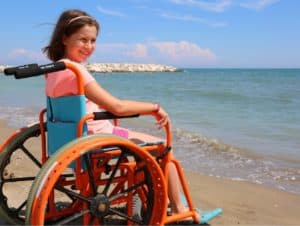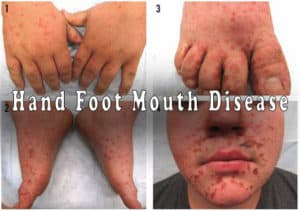COVID-19 UK variant (Facts)
- It is also known as COVID-19 B.1.1.7.
- UK variant is at present the most dominant variant in the USA also.
- It is believed to be more contagious than other variants.
- It affects more of younger aged people.
- The UK variant viruses now also have an extra mutation named E484K. It can help UK variant viruses evade human antibodies.
- PCR test can detect UK variant.
UK variant vs original variant
- The most common symptoms of the old (original) variant were persistent cough, loss of smell and taste sensation, and fever. These symptoms can occur in UK variant also but the loss of taste and smell is considerably rarer. In addition, fever is much rarer in UK variant.
- The UK variant is 43% to 90% more transmissible than the old variant which explains its rapid spread. UK variant virus is now spread all over the world.
- Patients infected by the UK variant have a 64% higher probability to get admitted to a hospital than the original variant.
- The UK variant causes more fatal disease compared to the old variant. One study found it causes 61% more 28-day mortality compared to the original variant. People aged between 70 to 84 years can have a 4.4% mortality rate if infected by B.1.1.7. But other newer studies did not find any difference in symptom severity between the UK variant and the original variant. Therefore, the actual symptom severity and mortality difference are still not completely known.
- The Oxford/AstraZeneca vaccine is 11% less effective for the UK variant.
South African Variant (Facts)
- It is also known as COVID-19 B.1.351.
- It was first detected in South Africa in late 2020.
- The South African variant and Brazil (P.1) variant use the same mutation of the UK variant (E484K) to evade antibodies.
- It is the dominant variant in Dhaka, Bangladesh.
- Countries predominantly infected with South African variant may get additional benefits by administering a booster dose. Further research is required to prove this point.
- It can be detected by PCR test.
South African variant vs original variant
- The South African variant may cause muscle or body pain, chronic fatigue, and dryness of eyes and mouth in addition to classic COVID-19 symptoms.
- It is more transmissible than the original variant.
- Pfizer vaccine may be less effective against the South African variant compared to the original variant.
- It is more contagious but no conclusive evidence of causing more severe disease and mortality was found.
COVID-19 FAQs
- What are the serious symptoms of COVID-19?
Answer: COVID-19 starts with mild symptoms and then it can gradually get severe. There are some differences in mild or moderate severity symptoms between strain to strain. But all COVID-19 strains cause similar severe symptoms in critically ill patients. The mode of death is also similar. The severe symptoms are – difficulty breathing causing decreased oxygen saturation, chest pain, and loss of speech or movement.
- Can people with mild COVID-19 symptoms recover at home?
Answer: Yes, they can. In fact, people with mild symptoms should manage themselves at home. They should go home isolation for 14 days.
- What are some known manifestations of post-COVID-19 conditions?
Answer: Some long-term post COVID-19 symptoms can be tiredness, dizziness, depression, difficulty concentrating, and worsening of pre-existing heart or lung disease. The post COVID-19 patients also have a higher probability to develop Alzheimer’s disease and Parkinson’s disease.
- Can I get COVID-19 from eating fresh food?
Answer: Currently there is no evidence that points towards COVID-19 infection spread by eating fresh food. You will not get COVID-19 by eating fresh fruits, and vegetables.
- Can I get the coronavirus disease from swimming in a swimming pool?
Answer: The answer is ‘no’ for a well-maintained swimming pool where people keep a safe distance. However, if the swimming pool is dirty and if you get closer to other swimmers then you are at risk of getting COVID-19 infection.
- How could smoking affect COVID-19?
Answer: Smoking damages the lung’s protective mechanisms and decreases immunity. It also deteriorates lung function. A smoker’s lung faces a hard time fighting against COVID-19. Therefore, stop smoking if you can. It will not only save you from various diseases but also save your money.
- Who is most at risk for COVID-19?
Answer: Older people, smokers, people with comorbidities like diabetes, chronic lung disease, chronic heart disease, and people with decreased immunity.
- What is the best face mask to wear in public during the pandemic?
Answer: The N95 Face mask. You can get our detailed discussion about N95 masks here: The ultimate guide to N95 Face Masks (parts, technology, reusability, safety, and price).
- Can I get COVID-19 from drinking water?
Answer: Till now, no cases have been identified who got COVID-19 infection from drinking water. Water is likely to decrease the activity of the virus. So, drinking plain or mineral water is safe.
- Why is COVID-19 causing so much stigma?
Answer: Because of the following factors –
- People are getting infected all over the world. In human history, no pandemic spread over the world as fast as COVID-19.
- People are dying. Every day all mass media are projecting death news which is causing fear and anxiety.
- Still, everything about COVID-19 is not known. The virus is rapidly changing and no protective measure is fully effective against it.



